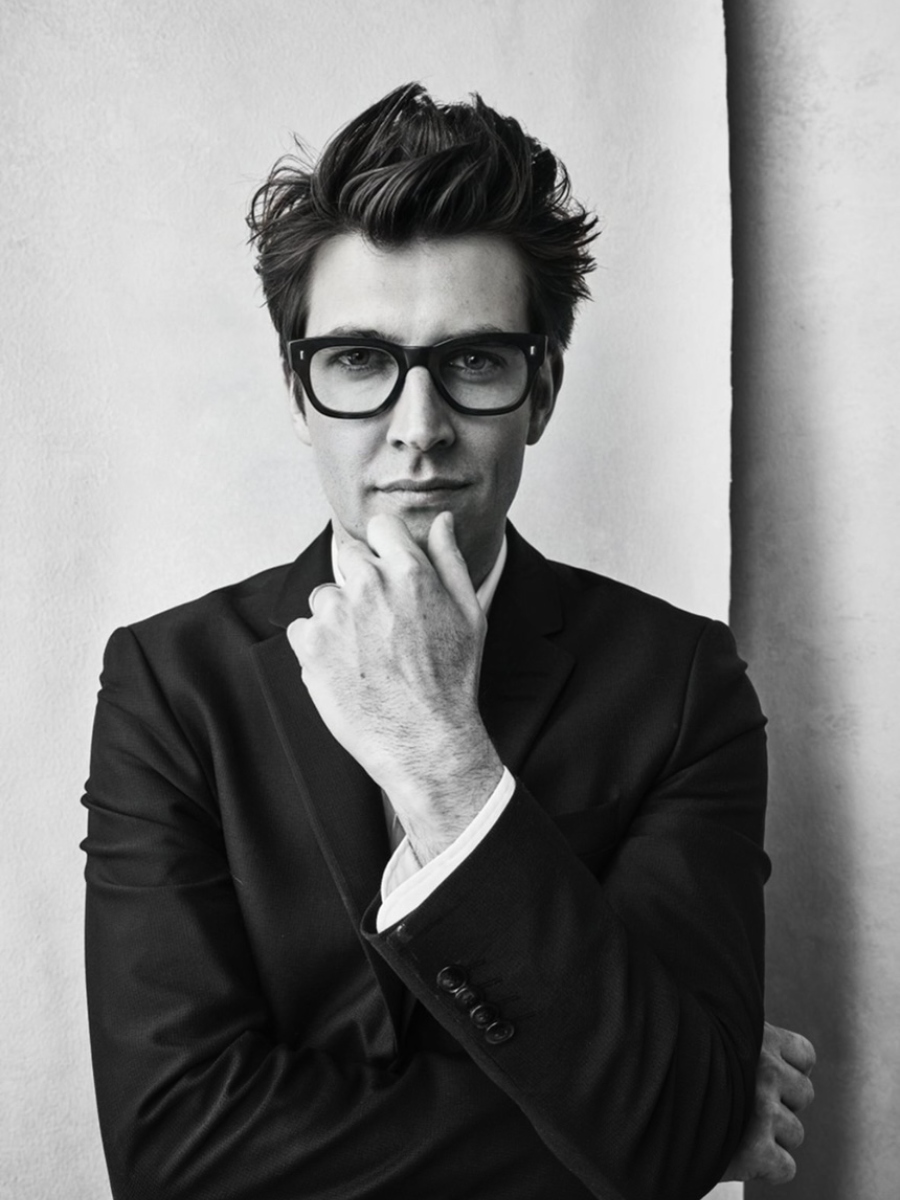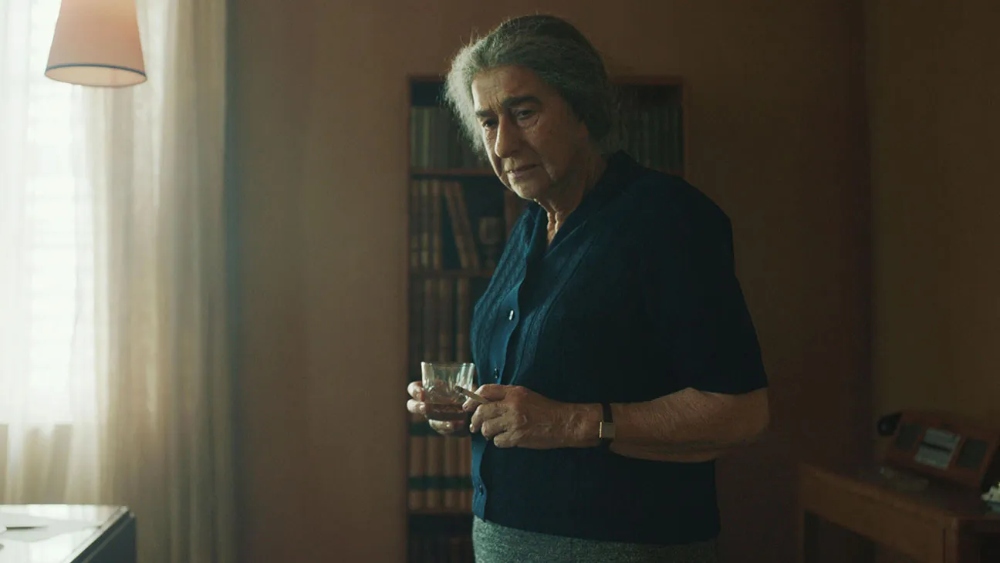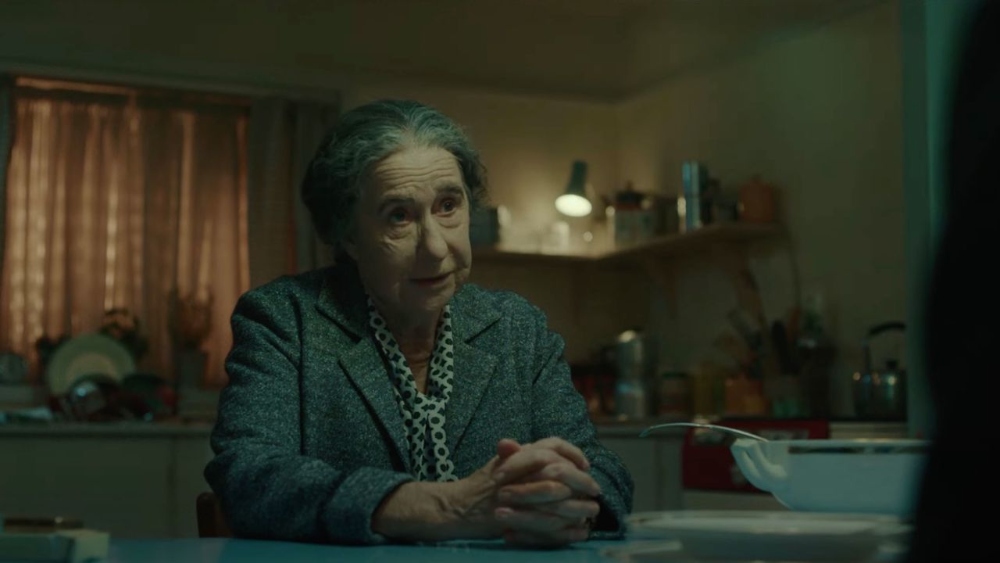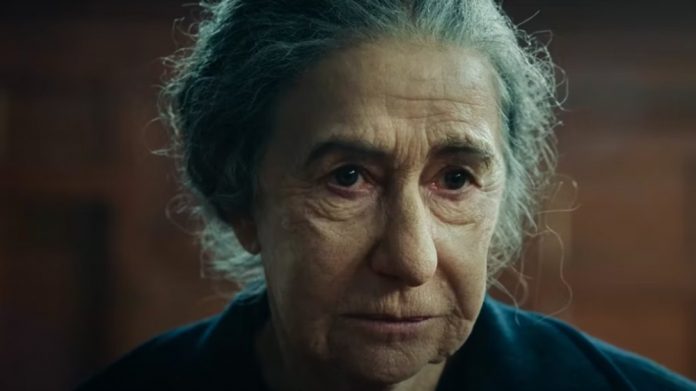Guy Nattiv‘s latest film stars Helen Mirren as Israeli Prime Minister Golda Meir, focusing on her role during the outbreak of the Yom Kippur War in 1973. It offers a complex portrait of a trailblazing female leader and the way in which she bore the weight of a nation in commanding the response to a devastating surprise attack by surrounding countries.
Above the Line spoke to Nattiv, an Oscar winner for his short film Skin, about tackling this project and how he relates to the material, having been born in the year of the film’s events. He spoke about how Israelis have engaged with the film and the way in which it feels all too relevant given the latest developments of governmental overreach in present-day Israel.
Nattiv also shared the warm response that Israeli audiences have had to the film and particularly to Mirren’s casting, despite controversy about her being chosen for the role rather than a Jewish actress. He reflected on what he hopes American audiences will see in the film and the formative films that he cites as inspirations.

Above the Line: I couldn’t help but notice that you were born in Israel in 1973. How do you engage with a subject that must have been so formative in your own childhood?
Guy Nattiv: First of all, when you make a movie, you want to feel close to the subject matter. I was one of those kids, the generation of ’73, Baby Boomers that were born after the war, or into the war. I grew up on a myth. I grew up on somebody who is not really a human being. She was a face on a fifty-shekel bill. My school was named after her. Today, she’s like an ice cream in Israel. There’s a Golda ice cream chain. So we didn’t really know who Golda was. She was just a someone. It’s not like JFK, when you learn in school about everything. I think that ten years ago, the protocols of the war and the uncensored documents came out, and gave us the real picture of what went down, and that’s what drew me into the project.
ATL: You didn’t write the script, but did you feel that this was an appropriate focus for this story, or was there more that you felt would be helpful for people to know than just what we see in this film?
Nattiv: It’s not National Geographic. I’m not coming to do a biopic from birth to death. If you look at Jackie, or if you look at films that focus on one thing, even The Queen focuses on one thing. That’s why you have The Crown, to tell an entire history. But this was not a lesson in history. This was basically more of a character piece under her skin, to understand how Golda felt and symbolized the downfall of a government, of a state that lost its way.
ATL: There’s obviously a lot of video footage of the real Golda available. I know we see a little bit of that in the film. Was it important for you to mimic what really was or to do something new with Helen’s representation?
Nattiv: I think that you always, as a director, you don’t want to mimic anything. You want to bring your own interpretation because even with the footage, it’s not really footage that you can rely on in terms of mimicking. You can mimic a walk, you can mimic a look, but you cannot mimic soul. I think that Helen and I and Nicholas Martin, we decided to dive deep into the mindset of Golda, of what she felt in closed rooms when no one was there. It’s our interpretation, obviously, a cinematic one.

ATL: You mentioned The Queen, and I think I associate Helen Mirren a lot with that film and others might also. Do you think that there’s any connection between those two very famous real-life characters that makes Helen a good connective tissue?
Nattiv: I know Helen was asked this question, “Is there a connection between the Queen and Golda?” and she said “No.” [They’re] completely different characters. Golda was warmer, had a human touch, [and was] more emotional, more funny. She was on a kibbutz. She was a kibbutznik. It’s a totally different character. And that’s why I think Helen was fascinated by portraying this woman.
ATL: I know there’s also been some conversation about the fact that she’s not a Jewish actress. Do you think that matters in any way?
Nattiv: First of all, when I came to this project, Helen was already cast. Golda’s grandson, he said to the production before I came, ‘I see my grandmother. That’s the woman who should portray my grandmother.’ And I met Helen, and Helen told me that she was a kibbutznik. She came to the kibbutz when she was 29 and she volunteered and toured the country and fell in love with an Israeli, and fell in love with Israel in a way, in 1967. She was there for a few months and she came back on and off.
When I met her, I felt that I was meeting my family member, my mom. I’m like, I’m talking to someone who I know you know. So, for me, she was so right for it. She understood Golda from every single angle possible. Obviously, she’s one of the best actors of our time. She’s so phenomenal. And she’s portrayed Jews before, in The Debt, and she also did Woman in Gold. She has it in her. And that’s what I felt. I told her, ‘I totally believe that you can portray Golda in a brilliant way.’
ATL: I was also delighted to recognize some Israeli actors like Lior Ashkenazi and Ohad Knoller in the supporting cast. Was it important to populate the cast with Israeli actors, and were they excited about being involved in this kind of project?
Nattiv: Yes, yes, and yes. It was one of my terms to make this movie, to make it in black and white, and to bring Israeli actors. My producer told me, ‘Forget about the black and white. It’s not going to happen, but Israeli actors, yes, we will bring whoever you want.’ And it was important because you want this authenticity.
ATL: I saw that the film played at the Jerusalem Film Festival a few months ago and that it’s being released in Israel at the same time it is here in the U.S. What was the reception like? Was it any different in Israel than in other places?
Nattiv: Obviously, when you screen it at the Berlin Film Festival and when you screen it in Jerusalem, it’s a massive difference because Israelis are so emotionally attached and so emotionally involved. There’s not one single family in Israel that is not somehow correlated to the war and to what happened. Your father, your grandfather. The reaction was very, very emotional and Helen got a lot of love in Israel, from a lot of Israelis. Every Israeli person is proud that Helen is portraying Golda. Berlin was a little colder, but I can understand that. I hope that in the States we can bring other people to watch the film.

ATL: It’s also a very tumultuous time in Israel right now, with the government and everything. Do you think that there are lessons from this film that people can take as far as what’s happening now?
Nattiv: Don’t get me started, Abe. I can talk for an hour about that. Yeah, I think it’s a pivotal film in such a time. I think that we are on the verge of a Yom Kippur for democracy in Israel. I myself went with my father, with my friends, with my tribe, to demonstrate against the horrible government of Bibi Netanyahu. You see in Golda how blind they are, the blindness of leaders, the blindness of the government, and the blindness of just marching into hell.
I feel the same happening now when Netanyahu doesn’t understand that he will not have an army if he continues to diminish the judicial system. And I hope the high court stops him from making this terrible mistake. I just don’t know what happened to this guy. He’s just lost it, and he’s controlled by radicals. So, for me, for Israelis, this movie signifies a lot.
ATL: And for Americans who may not be as familiar, especially young Americans, with the Yom Kippur War, what do you think they’ll take away from this film?
Nattiv: Exactly what happened to me when I watched The Last Emperor when I was a kid, the [Bernardo] Bertolucci film. I was blown away. I didn’t know anything about that. When I watched the film Gandhi, I was like, wow. I didn’t know anything about that. It just blew my mind. I want people to be curious about a country or a place and time in history they did not know about, or a character. Like Golda, the first woman leader in the history of the Western world in our time. This is massive. This is so super important for us to know.
ATL: It’s also a considerable departure, I think, from some of your previous films like Skin, both the short and the feature, a much more massive ensemble undertaking. Did you like that shift that you made?
Nattiv: It was an interesting shift. I would say that my next movie is back to Skin. I already made it. I’m playing with genres. Golda is like an homage to films from the ’70s that I grew up on, like The Conversation of Coppola, Das Boot, Blow Out by [Brian] De Palma, Three Days of the Condor. The paranoia films of the ’70s. I’m sure you grew up on that too, or not. For me, these films affected me a lot.
ATL: Do you have a desire to make Israeli films again, like Mabul and other past projects of yours?
Nattiv: Not when the government controls the narrative, because you have to sign an agreement that you’re not going to make an anti-Israeli movie and then they will give the money. Not in my case. I’m not going to be controlled by the narrative of Netanyahu. This is not something I would love to do. So, yes, I would love to do films in Hebrew, but not in the current climate.
ATL: Are you interested in any events from Israeli or world history that you would love to work on in the future?
Nattiv: Not in the near-future. I have Tatami coming up, which is my film that will be shown in Venice. [It’s] a political thriller about an Iranian judo fighter and the next one is about my grandmother, Harmonia. It’s more of a family story that we went through.
Golda is now playing in theaters nationwide courtesy of Bleecker Street.



